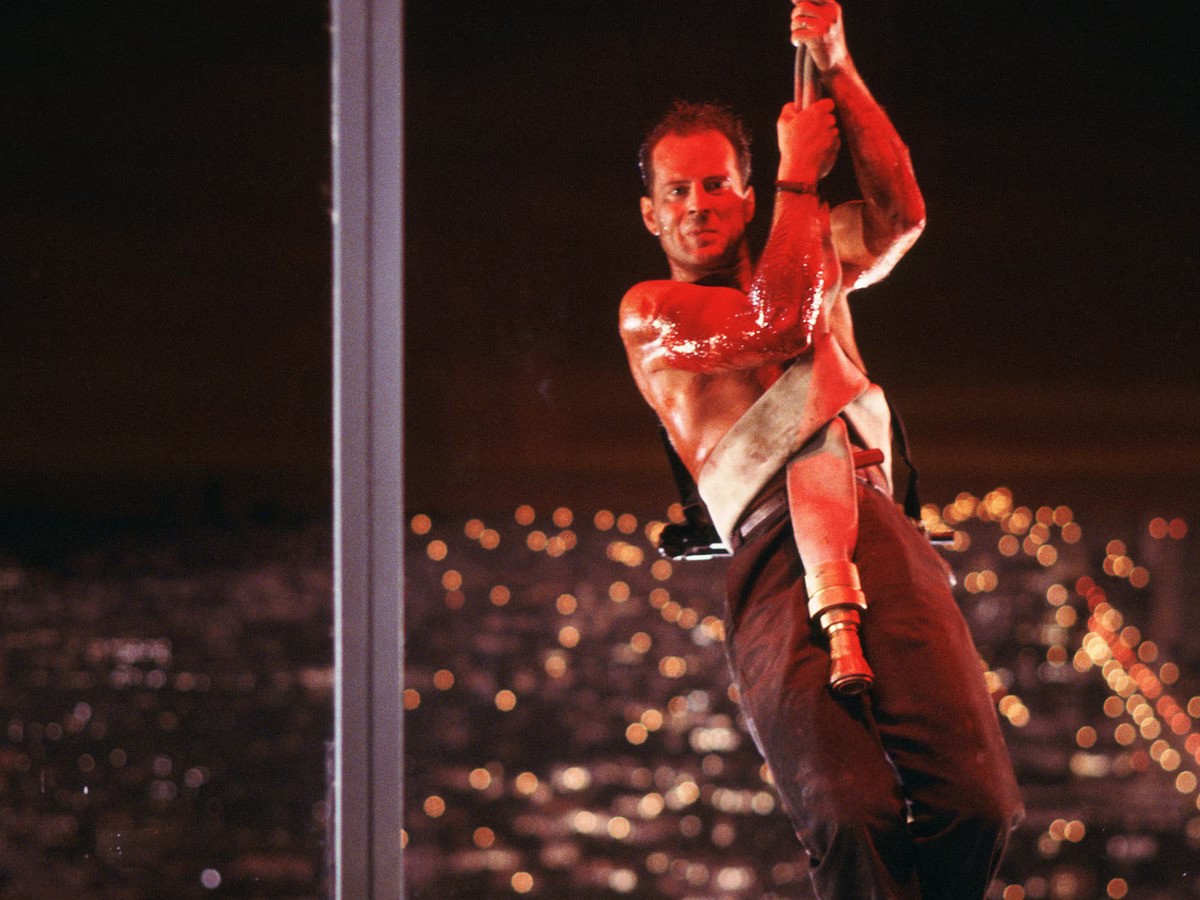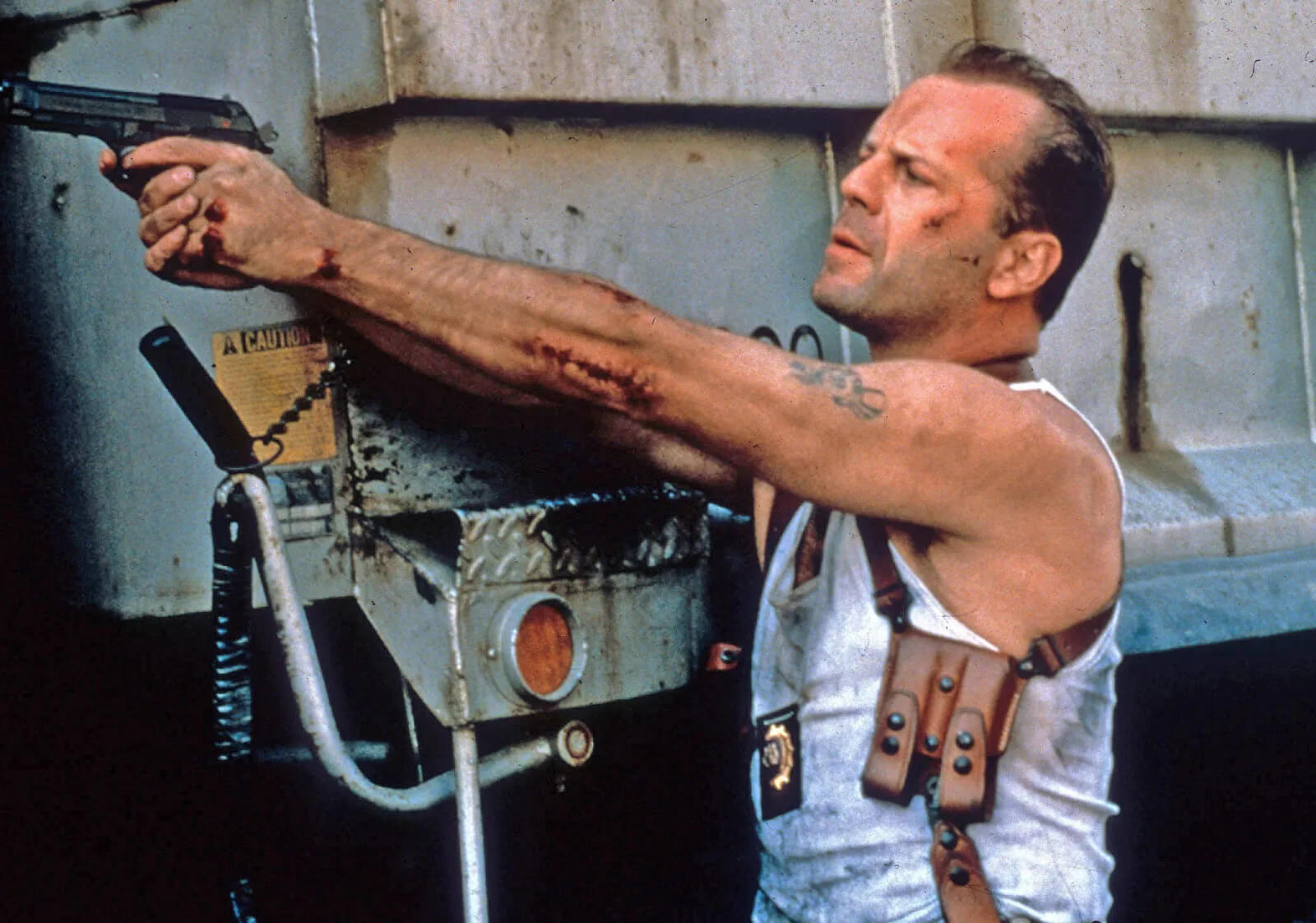“The poor guy…”: Bruce Willis’ Daughter Confirmed the Franchise That Gave the Action Legend a Permanent Disability

Hollywood star Bruce Willis gained popularity because of his iconic roles in action films and his versatile acting abilities. The actor’s career was unfortunately cut short in 2022 because of a medical condition known as frontotemporal dementia. The actor struggles with comprehending things and language.

Bruce Willis
While the Die Hard franchise significantly contributed to the actor’s success, it permanently gave Willis a disability. It’s not easy being an action movie star, with so many explosions, Willis’ hearing ability was significantly reduced. His daughter once explained that he now has trouble hearing.
Bruce Willis has two-thirds partial hearing loss

Bruce Willis in Die Hard
In 2007, actor Bruce Willis appeared for a Q&A session with The Guardian and revealed that his hearing ability was affected due to an accident on the sets of Die Hard (1988),
“Due to an accident on the first Die Hard, I suffer two-thirds partial hearing loss in my left ear and have a tendency to say, ‘Whaaa?’”
The Die Hard franchise solidified Willis’ place in Hollywood as an entertaining action star. He played the iconic role of John McClane in Die Hard (1988), Die Hard 2 (1990), Die Hard with a Vengeance (1995), Live Free or Die Hard (2007) and A Good Day to Die Hard (2013).
His daughter explained how he lost his hearing

Bruce Willis in the Die Hard franchise
Many people have often pointed out that Willis looks awkward while giving interviews, however, it’s just because he can’t hear the questions. His daughter, Rumer Willis, explained in 2013 (via ContactMusic),
“I think part of the problem is sometimes he can’t hear… because he shot a gun off next to his ear when he was doing Die Hard a long time ago, so he has partial hearing loss in his ears. If me and my sisters get together and he’s at a dinner table and we start talking about fashion and things, the poor guy…”
In March 2022, Willis’s family announced that he was retiring because he was suffering from a condition known as frontotemporal dementia. The condition affected the actor’s section of the brain that was responsible for controlling language expression and comprehension. It was risky for the actor to be on sets while suffering from this condition, so he was forced to retire permanently.





